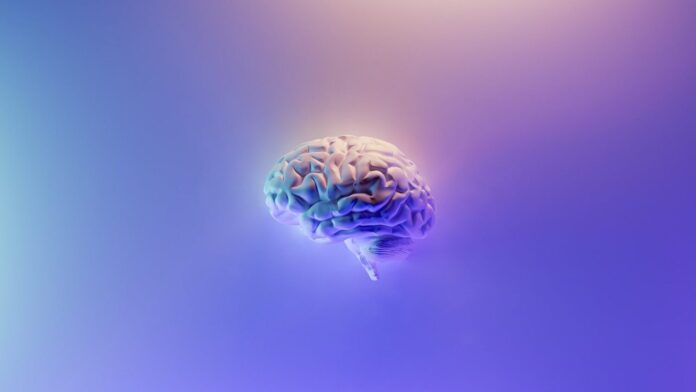
In the vast world of personal development and coaching, holistic life coaching emerges as a unique and transformative approach, striving to encompass the entirety of human experience.
At its core, holistic life coaching doesn’t just address a singular aspect of an individual’s life, like their career or relationships, but rather integrates the mental, physical, and emotional facets that constitute one’s existence.
Traditional coaching often zeroes in on specific goals, behaviors, or skills, providing guidance in a more linear and singular manner.
While both can be immensely beneficial, holistic life coaching offers a comprehensive view, recognizing that challenges in one area of life may stem from imbalances in another.
This article will discuss the relationship between mind, body, and spirit, and the science behind this interconnectedness with how it relates to holistic coaching.
The Holistic Paradigm
The holistic paradigm operates on the principle that the individual is an integrated whole, comprising various elements that are interconnected and interdependent.
Rather than seeing the mind, body, and spirit as isolated components, the holistic view posits that they are intrinsically linked, each influencing and being influenced by the others.
This perspective suggests that to truly understand or address an issue in one area, one must consider the entirety of the individual’s experience. For instance, physical ailments might not only be symptomatic of a bodily issue but could be rooted in emotional or psychological distress.
The Neuroscience of Holistic Coaching

Holistic coaching taps into the burgeoning field of neuroscience to examine how the brain plays a pivotal role in our ability to change and transform. At the heart of this lies the concept of neuroplasticity, the brain’s inherent ability to reorganize itself by forming new neural connections throughout life.
This adaptability allows individuals to learn from experiences, adapt to new situations, and even recover from brain injuries.
A holistic life coach leverages this principle, understanding that with the right stimuli and practices, one can reshape their brain to foster growth, break negative patterns, or adopt new beneficial habits.
Neuroscience research increasingly highlights the benefits of holistic practices, such as mindfulness and meditation, on brain health and function. Meditation, for instance, has been linked to increased gray matter density in areas associated with learning, memory, and emotion regulation.
Similarly, mindfulness practices have been shown to reduce activity in the amygdala, the brain’s center for stress and fear responses, promoting a sense of calm and emotional stability.
Emotional and Psychological Foundations

Within holistic coaching, emotion and psychology are viewed as foundational pillars that significantly impact an individual’s overall well-being. Emotions are not just transient feelings but powerful indicators of our internal framework, often pointing towards deeper psychological patterns or beliefs.
For instance, recurring feelings of unworthiness might be traced back to long standing beliefs formed in childhood. Holistic coaching explores these emotional and psychological feelings, aiming to understand their origins, patterns, and influences on an individual’s life.
By addressing these emotional and psychological foundations, holistic coaching offers individuals a profound level of self-awareness. It provides tools and strategies to understand complex emotions, challenge limiting beliefs, and cultivate a more empowering and resilient mindset.
Recognizing that these internal dynamics often shape the external outcomes in one’s life, a holistic approach seeks to bring harmony and balance within, fostering both internal clarity and external progress.
Energy and the Physical Body in Coaching

The notion that energy and the physical body are interconnected and play a significant role in our well-being is foundational to holistic coaching.
Energy, in this context, refers to the vital force or life force that is believed to circulate throughout the body, often conceptualized in terms like “chi” or “prana” in certain cultural and spiritual traditions.
An imbalance or blockage in this energy flow can manifest as physical ailments, emotional disturbances, or mental challenges. Holistic coaching recognizes this connection and often employs techniques that aim to restore and balance energy, such as Reiki, acupuncture, or chakra balancing.
The state of our physical body directly affects our mental and emotional well-being. Factors such as nutrition, exercise, and sleep can either enhance or impede our cognitive functions, mood, and overall health.
Holistic coaching, understanding this symbiotic relationship, often incorporates strategies to optimize physical health as a means to support emotional and psychological well-being.
Tools and Techniques in Holistic Coaching

Holistic coaching, with its vast scope and integrative nature, employs a diverse range of tools and techniques to cater to the multifaceted aspects of an individual’s well-being.
One prevalent tool is integrative assessment, which provides a comprehensive view of a client’s current state by evaluating their mental, physical, emotional, and sometimes even spiritual health.
Such assessments help coaches tailor their strategies to the unique needs and strengths of each client, ensuring that interventions are both relevant and effective.
Beyond assessments, holistic coaches often integrate practices like guided visualization, which harnesses the power of the mind to manifest positive changes, and breathwork, which aids in releasing emotional blockages and promoting relaxation.
Additionally, reflective exercises like journaling can be employed to facilitate deeper self-awareness, helping clients uncover patterns, beliefs, and insights.
Techniques from various therapeutic traditions, including cognitive-behavioral therapy, mindfulness meditation, or even movement-based therapies, can be woven into the coaching process.
Holistic coaching stands as a testament to the interconnectedness of our mental, emotional, physical, and spiritual dimensions.
By embracing a comprehensive approach, it offers individuals a pathway to profound transformation, addressing the root causes of challenges rather than just their surface manifestations.
As the world continues to recognize the merits of this integrative method, holistic coaching paves the way for deeper, more sustainable personal growth and well-being.
Are you maybe interested in becoming a life coach yourself? If so, you are on the right track. Our article will help you get started and navigate the journey of becoming a life coach more easily. So, what are you waiting for?








